This will do the work:
for(i in 1:ncol(iris))
{
a<-data.frame(colnames(iris)[i],unique(iris[,i]),i)
g<-rbind(g,a)
}
g <- setNames(g,c('x','y','z')) ## note the `g <-`
write.csv(g, file="1.csv", row.names = FALSE) ## don't write row names
setNames returns a new data frame with names "x", "y" and "z", rather than updating the input data frame g. You need the explicit assignment <- to do the "replacement". You may hide such <- by using either of the two
names(g) <- c('x','y','z')
colnames(g) <- c('x','y','z')
Alternatively, you can use the col.names argument inside write.table:
for(i in 1:ncol(iris))
{
a<-data.frame(colnames(iris)[i],unique(iris[,i]),i)
g<-rbind(g,a)
}
write.table(g, file="a.csv", col.names=c("x","y","z"), sep =",", row.names=FALSE)
write.csv() does not support col.names, hence we use write.table(..., sep = ","). Trying to use col.names in write.csv will generate a warning.
A more efficient way
I would avoid using rbind inside a loop. I would do:
x <- lapply(iris, function (column) as.character(unique(column)))
g <- cbind.data.frame(stack(x), rep.int(1:ncol(iris), lengths(x)))
write.table(g, file="1.csv", row.names=FALSE, col.names=c("x","y","z"), sep=",")
Read ?lapply and ?stack for more.
